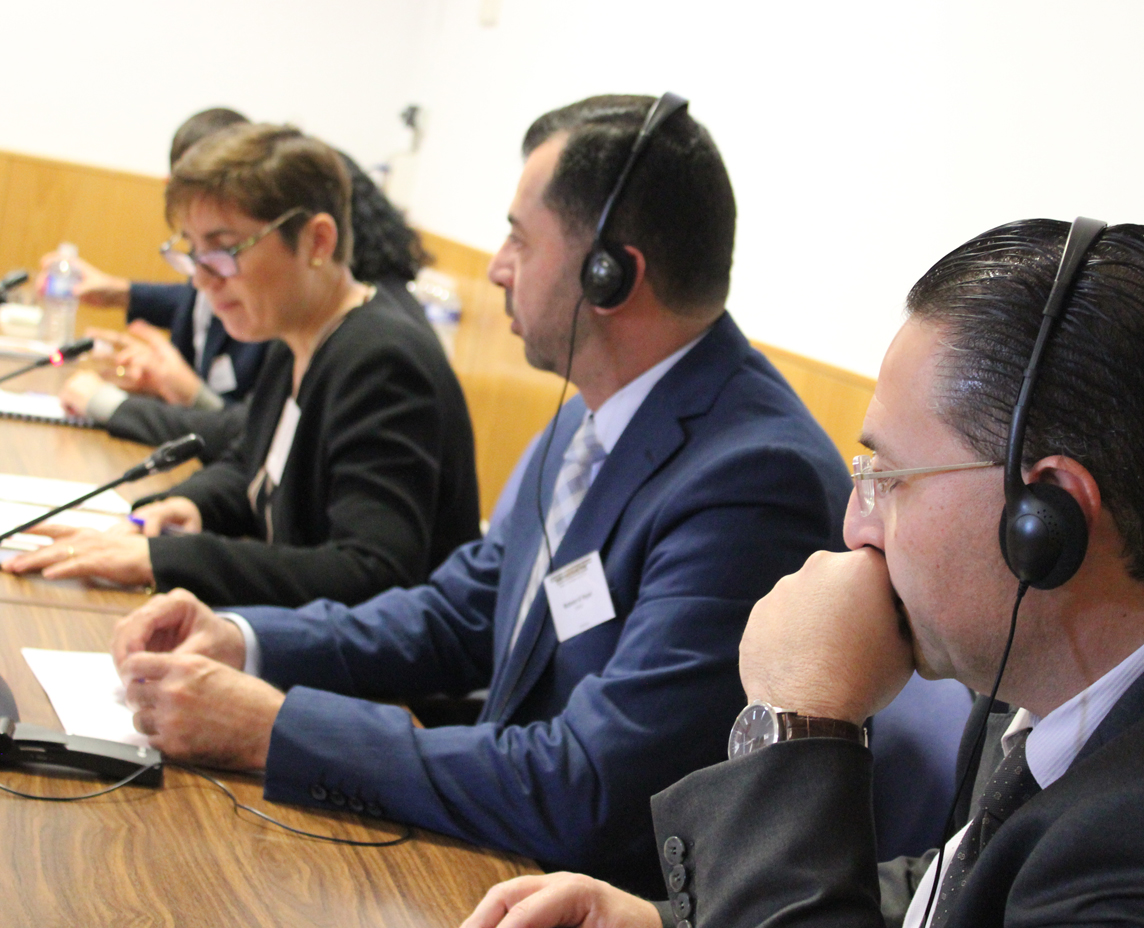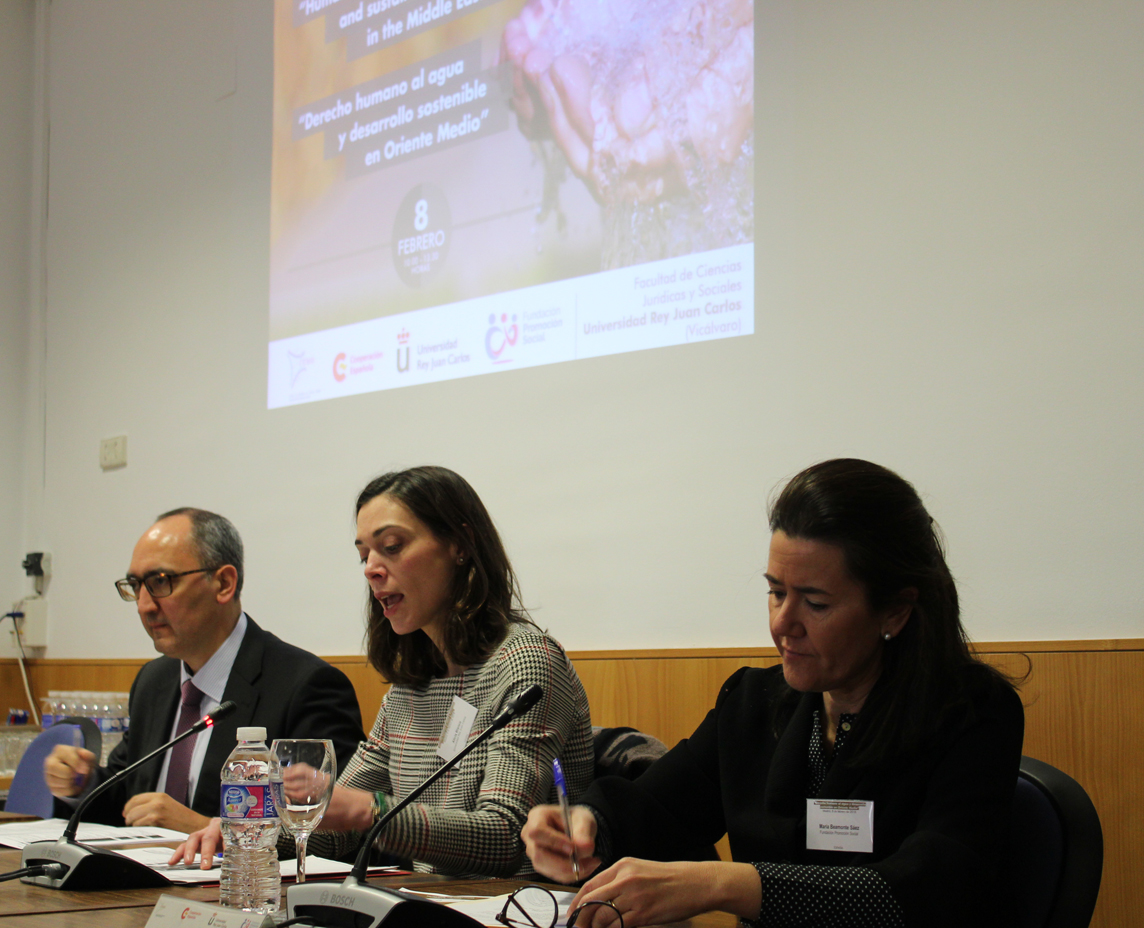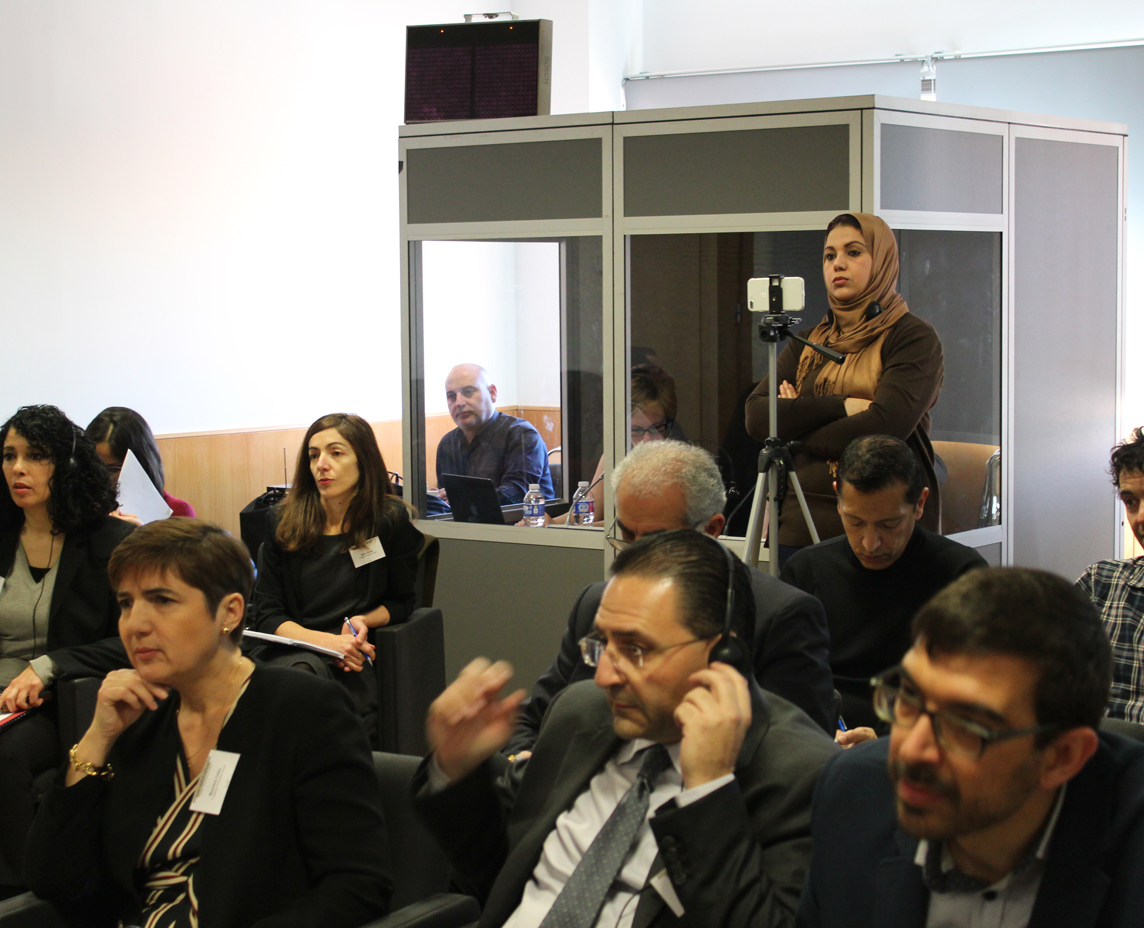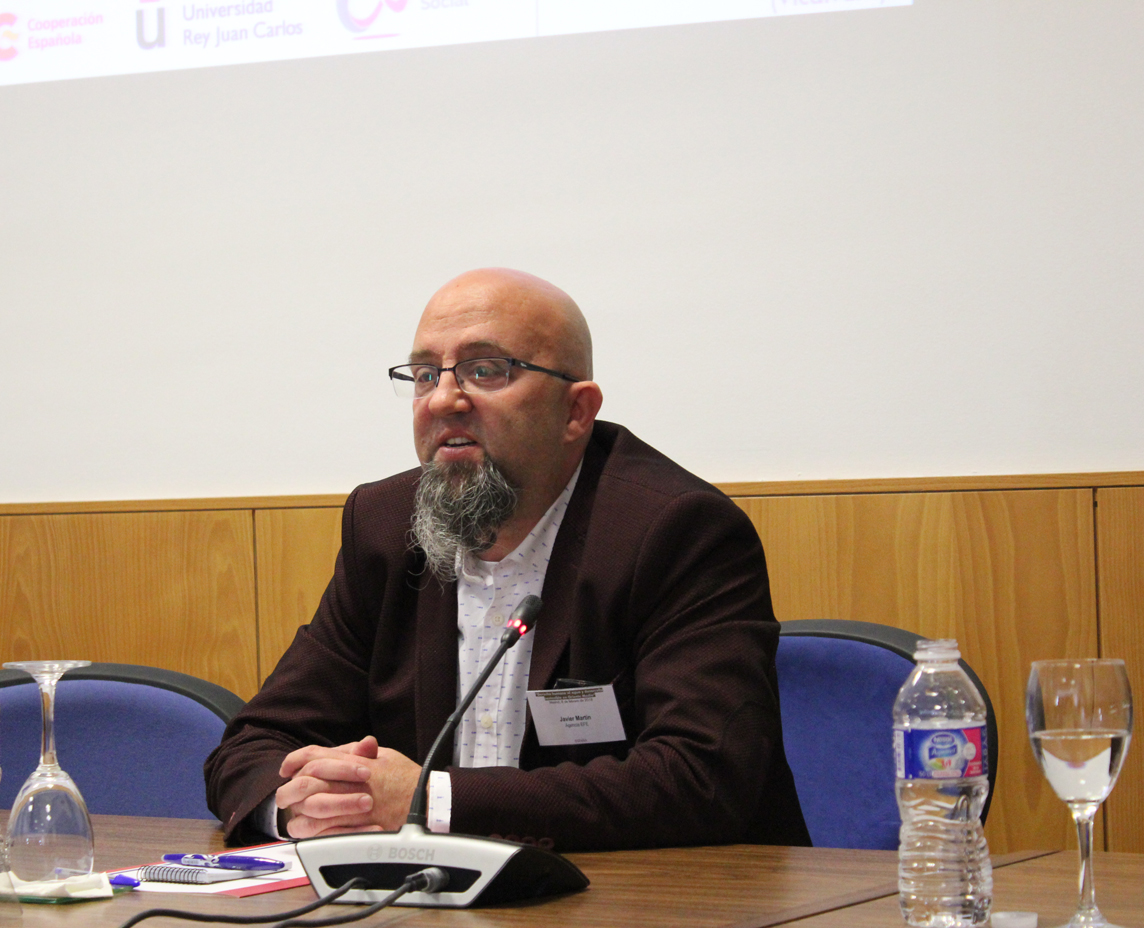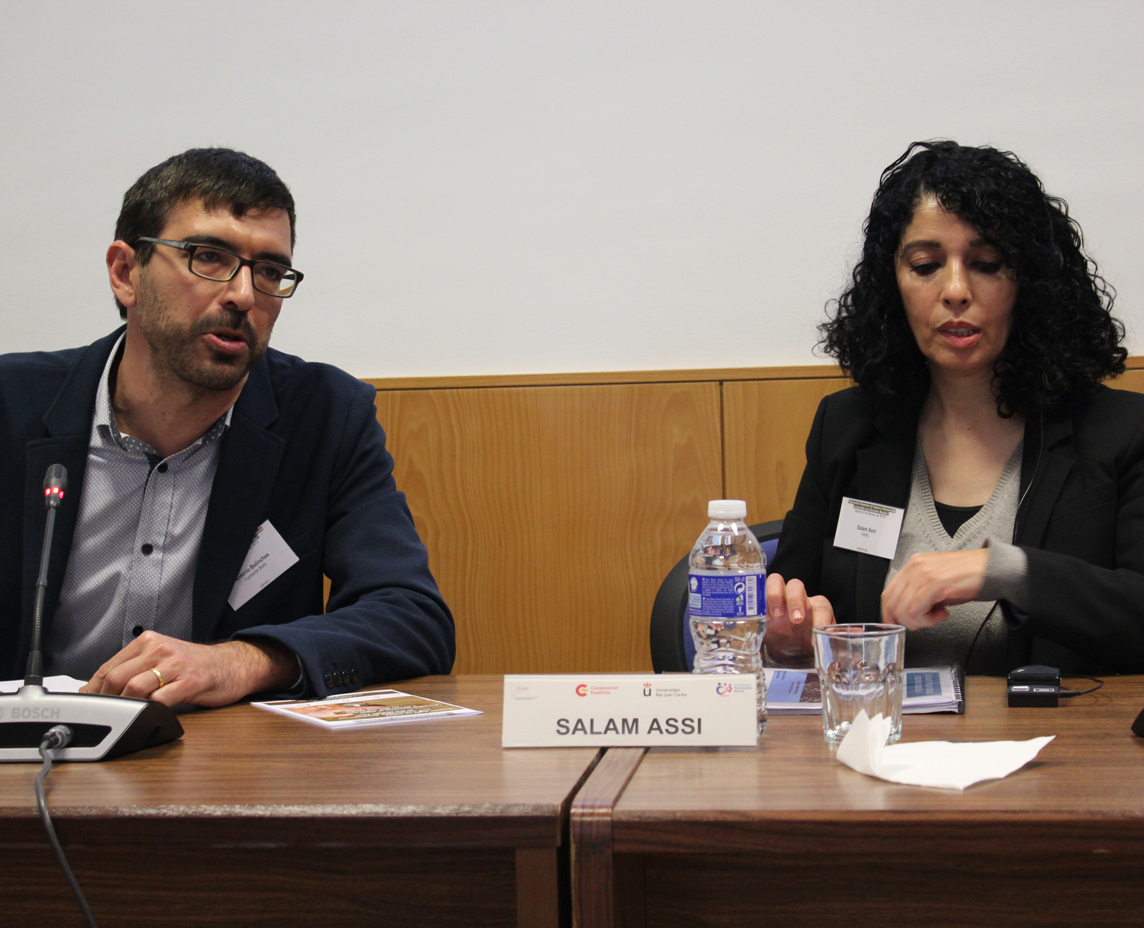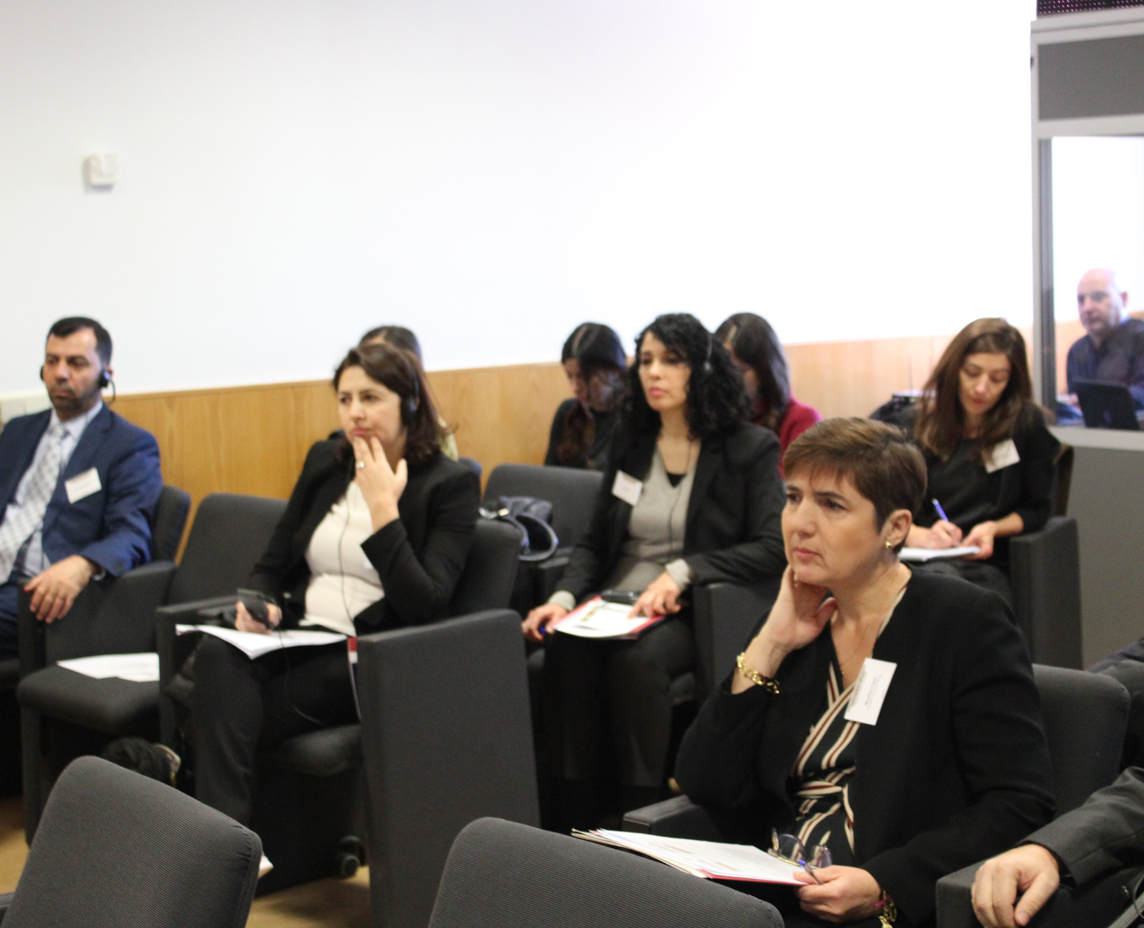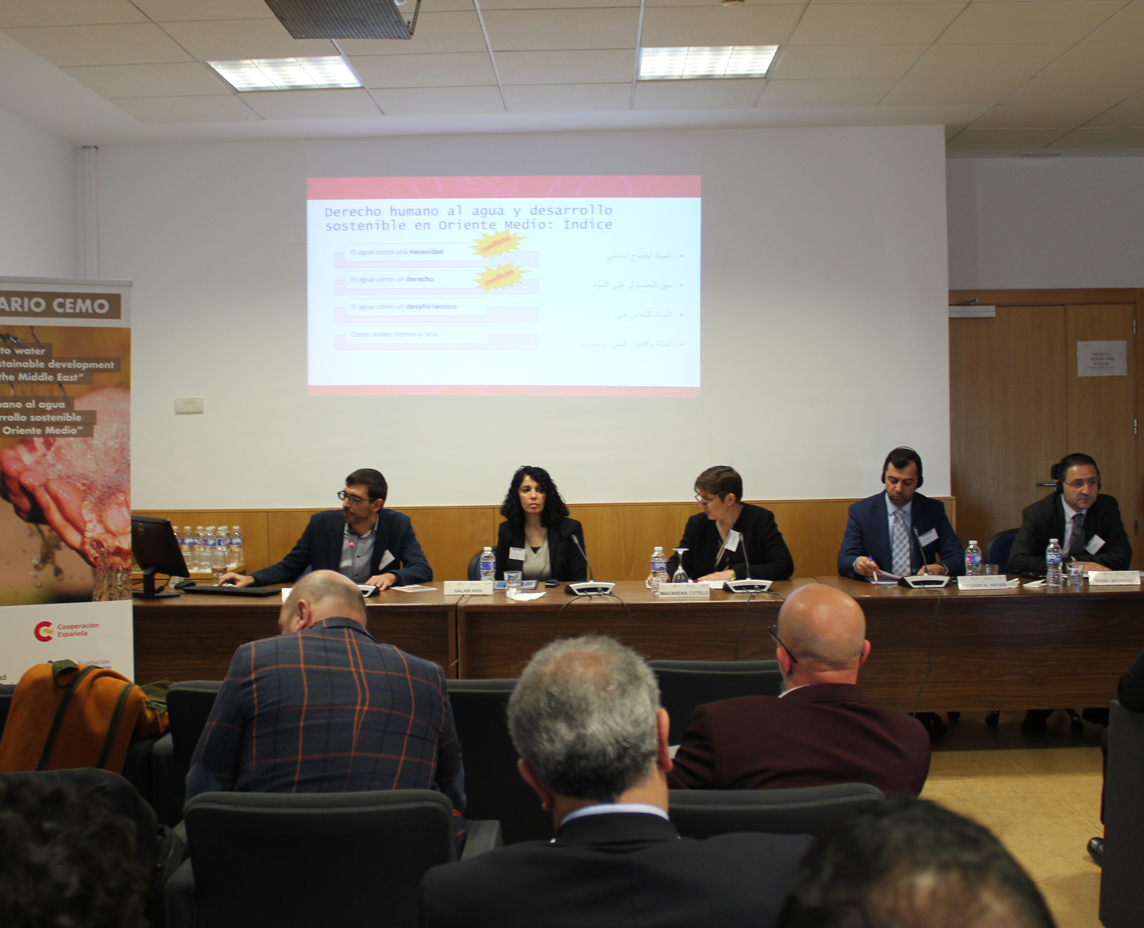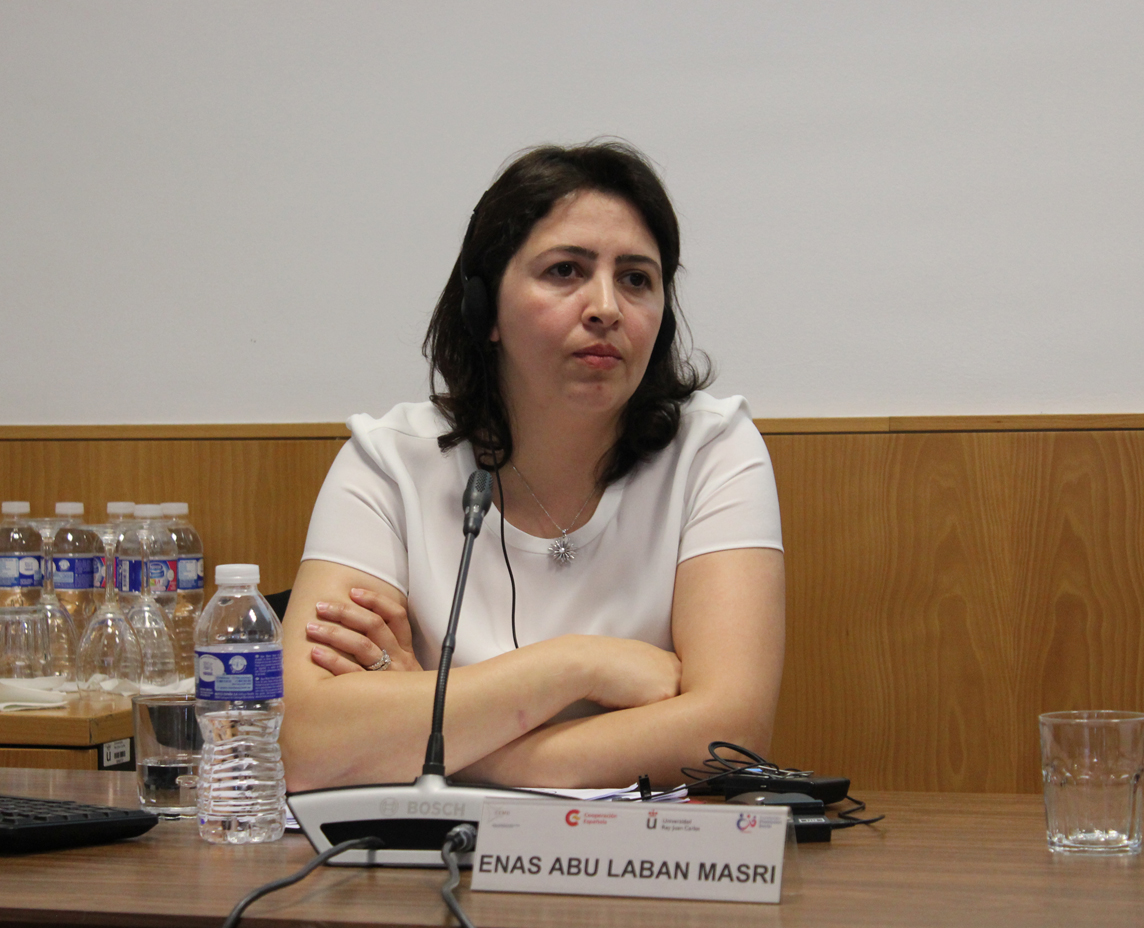The Seminar, whose objective was to raise interest in the university field regarding the problem of the right to access to water in the Middle East and to promote reflection on the great challenges and opportunities offered by the 2030 Agenda, presented good practices on access to water and water management promoted by international organizations and civil society in the region.
In the inaugural session and the opening of the Seminar participated Javier Sota, Head of the Sectorial Cooperation Department of the Directorate of Multilateral, Horizontal and Financial Cooperation of the Spanish Agency for International Cooperation for Development (AECID), Alicia Blanco, Vice Dean of Academic Organization, and Internationalization of the Faculty of Legal and Social Sciences of the Rey Juan Carlos University and María Beamonte, General Director of the Social Promotion Foundation.
Next, Javier Martín, Journalist, and Delegate of the EFE Agency in North Africa gave an opening lecture to contextualize the Middle East region.
He addressed the different milestones that have marked the agenda of the jihadist movement, the issue of Arab springs and raised different facts that help us to understand the Arab world today.
For him, “the Arab springs arose in defense of freedom, rights, and social justice” and “before creating a democracy, we must build a society that guarantees the human rights of the population.”
Regarding water, he commented that “we have gone from black gold to blue gold, the Saudis in Spain and Europe are buying springs and bottling plants“.
According to him, the water problem is found in many current conflicts in the region: Palestine-Israel, Egypt-Ethiopia, Kurdistan-Turkey-Iraq, and Islamic State.
The first session dedicated to the “Work experience of civil society in the Middle East” was moderated by the Projects Director of Social Promotion Foundation, Macarena Cotelo, and in which participated, Antonio Bolinches, Member of the Water Observatory of the Botín Foundation, Salam Assi, Coordinator of Water and Environment Projects of PARC (Palestine), Nabil Moawad, Director of the René Moawad Foundation (Lebanon), and Muttasim Al Hayari, Director of the Natural Resources Programs of JOHUD (Jordan).
Nabil Moawad and Muttasin Al Hayari emphasized the impact of the arrival of Syrian refugees in Lebanon and Jordan, where a surge and very high population pressure, exponentially multiplies the problems of access to water and the urgent need to mitigate this situation between refugees and the vulnerable host population.
For Antonio Bolinches, water in the region is a technical challenge and the water supply is not enough: energy, technicians, etc are needed. According to him, in situations of conflict we can not talk about sustainable development.
Salam Assi focused much of his intervention in the Gaza Strip, said that the current situation of access to water in the Gaza Strip is critical due to its scarcity and high level of pollution, and for it is very urgent construction of desalination plants.
The second session, under the title “International Organizations and Donor Commitment: Case Study of the Gaza Strip” was led by Enas Abu Laban Masri, Head of Water Resources in the Quartet Office (Jerusalem).
She pointed out that the main challenges facing the international community there are the political situation, the scarcity of resources and the sustainability of the programs.
According to her, 90% of the water is not safe and they have serious problems with energy supply. In the short term, they expect a low volume of desalination plants.
Then a general debate took place, moderated by Alejandro Maceira, Founder and Director of iAgua.
The closing of the seminar was conducted by Daniel Gayo, Director of the Master in Global Affairs of the Rey Juan Carlos University and Juan Francisco Montalbán, Ambassador in Special Mission for the “2030 Agenda“.





